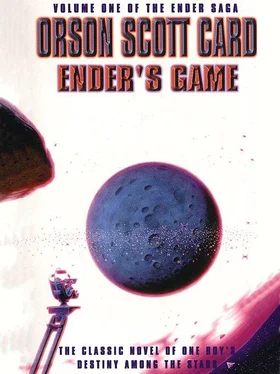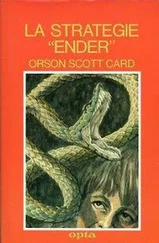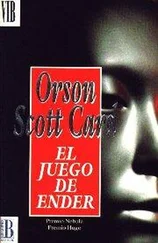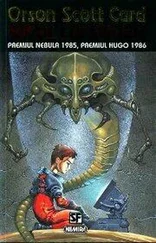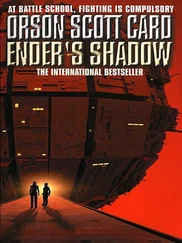"Only in the next few years. The longer we wait, the older they get, and the less shocking it is to discover who they are."
"You know what the Russian troop movements have been. There's always the chance that Demosthenes is right . In which case—"
"We'd better have Demosthenes around. All right. We'll show them clean, for now. But watch them. And I, of course, have to find ways of keeping the Russians calm."
*
In spite of all her misgivings, Valentine was having fun being Demosthenes. Her column was now being carried on practically every newsnet in the country, and it was fun to watch the money pile up in her attorney's accounts. Every now and then she and Peter would, in Demosthenes' name, donate a carefully calculated sum to a particular candidate or cause: enough money that the donation would be noticed, but not so much that the candidate would feel she was trying to buy a vote. She was getting so many letters now that her newsnet had hired a secretary to answer certain classes of routine correspondence for her. The fun letters, from national and international leaders, sometimes hostile, sometimes friendly, always diplomatically trying to pry into Demosthenes' mind—those she and Peter read together, laughing in delight sometimes that people like this were writing to children, and didn't know it.
Sometimes, though, she was ashamed. Father was reading Demosthenes regularly; he never read Locke, or if he did, he said nothing about it. At dinner, though, he would often regale them with some telling point Demosthenes had made in that day's column. Peter loved it when Father did that—"See, it shows that the common man is paying attention"—but it made Valentine feel humiliated for Father. If he ever found out that all this time I was writing the columns he told us about, and that I didn't even believe half the things I wrote, he would be angry and ashamed.
At school, she once nearly got them in trouble, when her history teacher assigned the class to write a paper contrasting the views of Demosthenes and Locke as expressed in two of their early columns. Valentine was careless, and did a brilliant job of analysis. As a result, she had to work hard to talk the principal out of having her essay published on the very newsnet that carried Demosthenes' column. Peter was savage about it. "You write too much like Demosthenes, you can't get published, I should kill Demosthenes now, you're getting out of control."
If he raged about that blunder, Peter frightened her still more when he went silent. It happened when Demosthenes was invited to take part in the President's Council on Education for the Future, a blue-ribbon panel that was designed to do nothing, but do it splendidly. Valentine thought Peter would take it as a triumph, but he did not. "Turn it down," he said.
"Why should I?" she asked, "It's no work at all, and they even said that because of Demosthenes' well-known desire for privacy, they would net all the meetings. It makes Demosthenes into a respectable person, and—"
"And you love it that you got that before I did."
"Peter, it isn't you and me, it's Demosthenes and Locke. We made them up. They aren't real. Besides, this appointment doesn't mean they like Demosthenes better than Locke, it just means that Demosthenes has a much stronger base of support. You knew he would. Appointing him pleases a large number of Russian-haters and chauvinists."
"It wasn't supposed to work this way. Locke was supposed to be the respected one."
"He is! Real respect takes longer than official respect. Peter, don't be angry at me because I've done well with the things you told me to do."
But he was angry, for days, and ever since then he had left her to think through all her own columns, instead of telling her what to write. He probably assumed that this would make the quality of Demosthenes' columns deteriorate, but if it did no one noticed. Perhaps it made him even angrier that she never came to him weeping for help. She had been Demosthenes too long now to need anyone to tell her what Demosthenes would think about things.
And as her correspondence with other politically active citizens grew, she began to learn things, information that simply wasn't available to the general public. Certain military people who corresponded with her dropped hints about things without meaning to, and she and Peter put them together to build up a fascinating and frightening picture of Warsaw Pact activity. They were indeed preparing for war, a vicious and bloods earthbound war. Demosthenes wasn't wrong to suspect that the Warsaw Pact was not abiding by the terms of the League.
And the character of Demosthenes gradually took on a life of his own. At times she found herself thinking like Demosthenes at the end of a writing session, agreeing with ideas that were supposed to be calculated poses. And sometimes she read Peter's Locke essays and found herself annoyed at his obvious blindness to what was really going on.
Perhaps it's impossible to wear an identity without becoming what you pretend to be. She thought of that, worried about it for a few days, and then wrote a column using that as a premise, to show that politicians who toadied to the Russians in order to keep the peace would inevitably end up subservient to them in everything. It was a lovely bite at the party in power, and she got a lot of good mail about it. She also stopped being frightened of the idea of becoming, to a degree, Demosthenes. He's smarter than Peter and I ever gave him credit for, she thought.
Graff was waiting for her after school. He stood leaning on his car. He was in civilian clothes, and he had gained weight, so she didn't recognize him at first. But he beckoned to her, and before he could introduce himself she remembered his name.
"I won't write another letter," she said. "I never should have written that one.
"You don't like medals, then, I guess."
"Not much."
"Come for a ride with me, Valentine."
"I don't ride with strangers."
He handed her a paper. It was a release form, and her parents had signed it.
"I guess you're not a stranger. Where are we going?"
"To see a young soldier who is in Greensboro on leave."
She got in the car. "Ender's only ten years old," she said. "I thought you told us the first time he'd be eligible for a leave was when he was twelve."
"He skipped a few grades."
"So he's doing well?"
"Ask him when you see him."
"Why me? Why not the whole family?"
Graff sighed. "Ender sees the world his own way. We had to persuade him to see you. As for Peter and your parents, he was not interested. Life at the Battle School was—intense."
"What do you mean, he's gone crazy?"
"On the contrary, he's the sanest person I know. He's sane enough to know that his parents are not particularly eager to reopen a book of affection that was closed quite tightly four years ago. As for Peter—we didn't even suggest a meeting, and so he didn't have a chance to tell us to go to hell."
They went out Lake Brandt Road and turned off just past the lake, following a road that wound down and up until they came to a white clapboard mansion that sprawled along the top of a hill. It looked over Lake Brandt on one side and a five-acre private lake on the other. "This is the house that Medly's Mist-E-Rub built," said Graff. "The I.F. picked it up in a tax sale about twenty years ago. Ender insisted that his conversation with you should not be bugged. I promised him it wouldn't be, and to help inspire confidence, the two of you are going out on a raft he built himself. I should warn you, though. I intend to ask you questions about your conversation when it is finished. You don't have to answer, but I hope you will."
"I didn't bring a swimming suit."
"We can provide one."
Читать дальше
